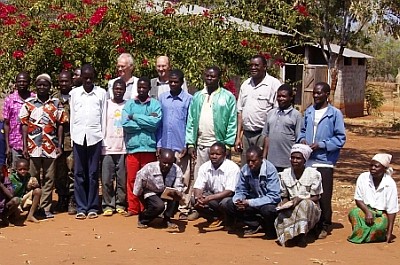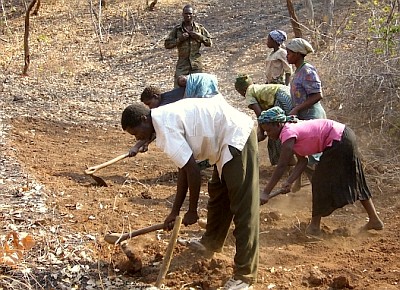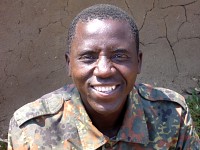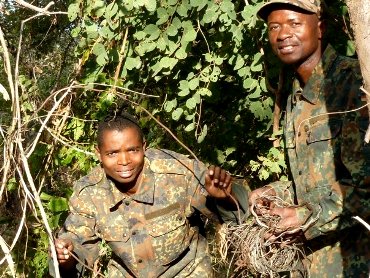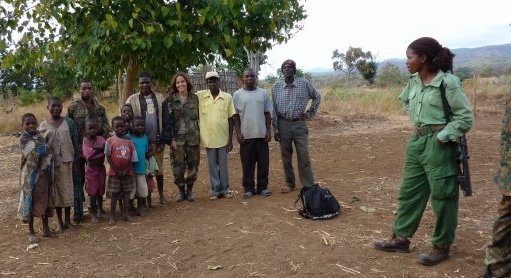November - December 2009:
The rains are here now and Thuma has turned into a wonderful green paradise, everything is growing at a phenonomal rate, along with the animal population.
Road maintenance will now be the big issue here, the rains have made some areas fun to navigate and of course Nature is growing back after the dry season and covering up the tracks.Miss Monika Haussmann returned to Germany after being with us for almost 3 months, energetically working to assist in the continuing existence of Thuma FR and all it contains, she will be sorely missed (and her great cooking too!!)
On Christmas day the scouts went on anti poaching patrol along with mrs edina kaphuka the DNPW armed ranger (poachers don't break up for Christmas!) with a promise of a large Christmas lunch on their return, cooked by myself for them, comprising of roasted whole chickens, tomatoes and onion salad with cabbage coslaw dressing and soft drinks, they provided the nisima and we all had a filling lunch in the beautiful surroundings of Thuma camp.
The Elephant's have been situated around base camp lately, and can be heard rumbling at night,along with the call of the hyena, we have several strong herds of elephant, most sightings are 18+ with quite a few young ones in attendance, the kudu herds have also increased and regular sightings of these beautiful antelope can be steadily seen,along with fleeting rushes of bushbuck,duiker and grysbok to mention but a few.
The new electric fence is doing its job of keeping the elephant/human conflict problem a thing of the past in the East, although with the rains, the fence alarm is sounding off now and again and the odd fallen branch assists in activating the alarm as well. Both the Lilongwe and Thinthipe rivers are now in flood and act a a great barrier to stop illegal entry and poaching to the northern and southern areas of the Forest reserve, strong scouts those!
On the down side, the tsetse fly population has increased and can be a real bother when exiting from the vehicle after driving though the FR, especially on returning to camp,as they are attracted to the moving vehicle and catch a ride back to base......there is always a little problem to go hand in hand with Paradise.
